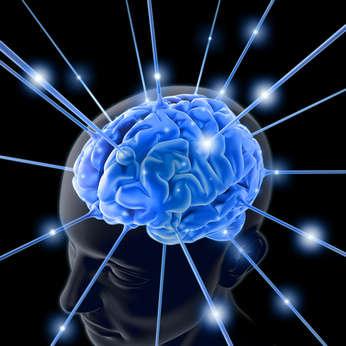Genetically engineered cells, that produce an enzyme that disolves the toxic plaques associated with Alzheimers disease, have been produced by scientists.
The researchers used mice which they infected with a human gene that caused them to develop, at an accelerated rate, the disease that robs millions of elderly people of their memories. After receiving the doctored cells, the brain-muddling plaques melted away. If this works in humans, old age could be a much happier time of life.
Alzheimers involves a protein called amyloid-beta, which makes up gooey clots or plaques that form in the brain. These toxic clumps, along with accessory tangled fibers, kill brain cells and interfere with memory and thinking. The situation has been compared to a build-up of cholesterol in coronary arteries.
Delivery of genes that led to production of an enzyme that breaks up amyloid showed robust clearance of plaques in the brains of the mice, notes Dennis Selkoe, Vincent and Stella Coates Professor of Neurologic Diseases at Harvard Medical School. These results support and encourage further investigation of gene therapy for treatment of this common and devastating disease in humans.
The first published report of the experiments, done by Selkoe and other researchers from Harvard-affiliated Brigham and Womens and McLean hospitals, appeared Aug. 27 on the Web site of the Public Library of Science.
The gene delivery technique employed by the research team has been used in several other trials with animals that model human diseases, including cancers. The procedure involves removing cells from patients, making genetic changes, and then putting back the modified cells, which should treat a disease or disability. So far, this approach has produced encouraging results for cancers, blood, muscle, and eye diseases, spinal cord injuries, stroke, Parkinsons and Huntington diseases, and amyotrophic lateral sclerosis (Lou Gehrigs disease). Several of these potential treatments have advanced to human trials, with encouraging outcomes for patients, says Matthew Hemming, lead author of the report and a graduate student in Selkoes lab.
Another way to do gene therapy involves using a virus to carry the curative gene to target cells. However, two people have died and three contracted leukemia in experiments using this method. The drawback of using viruses this way is that the added gene often mixes with the patients genome in ways that can lead to unwanted side effects, including cancer and, possibly, death.
The Harvard team used skin cells from the animals own body to introduce a gene for an amyloid-busting enzyme known as neprilysin. The skin cells, also known as fibroblasts, do not form tumors or move from the implantation site, Hemming notes. They cause no detectable adverse side effects and can easily be taken from a patients skin. In addition, other genes can be added to the fibroblast-neprilysin combo, which will eliminate the implants if something starts to go wrong.
Will it work in humans?
This method worked well in the Alzheimer’s experiments. The gene that removed the amyloid-beta may not only prevent brain cells from dying, but will also remove the toxic protein that drives the disease progression, Hemming comments.
The experiments proved that the technique works, but will it work in humans? One major obstacle, Selkoe says, is the larger size of a human brain compared to that of a mouse. That difference will require an increase of amyloid-busting activity throughout a much larger space.
One solution might involve implanting the genes and fibroblasts where they have the best access to amyloid-beta, in the spinal fluid for example, instead of trying to inject them into a small target. The amyloid-killing combo might be put into capsules that would secrete neprilysin into the blood circulating in the brain, eliminating the need to hit an exact spot.
This or some other clever maneuver that does not require surgery might eliminate the gooey plaques, but will that improve a persons memory? And will the change be long-lasting? Further work is needed to determine if reducing the plaque burden has cognitive benefits over a long period, notes Hemming, but theres a wealth of evidence arguing that it will.
More information at www.news.harvard.edu
 message communications.
message communications.



